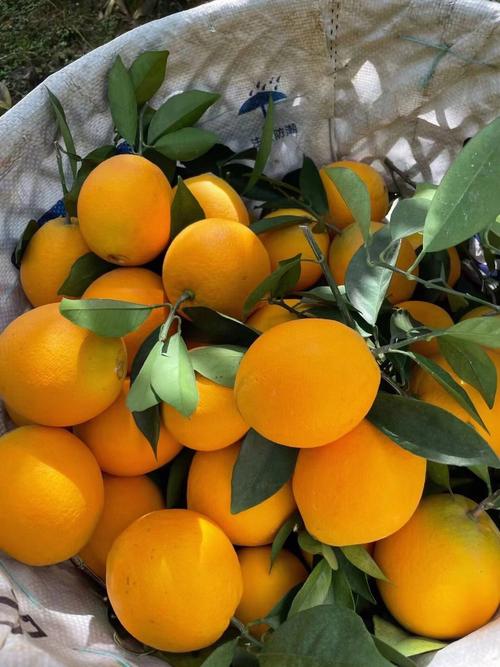
The Grove Where Time Slows: Growing Navel Oranges with Dirt Under Our Nails and Love in Our Hearts
There’s a place where time doesn’t rush. Where the sun crawls over the horizon like honey, where the wind carries the hum of bees instead of alarms, and where my hands—calloused, stained with citrus oils—still remember the weight of my first orange, plucked green and sour from a branch when I was five. This is our grove. Not a business. Not a brand. Just a patch of earth we’ve loved, tended, and let grow at its own pace for four generations.
Great-Grandma’s Rule: “Let the Tree Decide”
The story starts with Great-Grandma Elsie. She arrived here in 1920, a young bride with dirt-stained overalls and a suitcase full of seeds. The land was wild then—scrubby oaks, tangled vines, and soil so hard you could bounce a penny off it. “Oranges don’t grow on command,” she’d say, patting the earth as she planted her first sapling. “You ask. You listen. Then you let them choose how to thrive.”
Her rule still guides us. We don’t force growth. We prune only what blocks the sun, thin fruit only when the branches sag, and water only when the soil whispers dry. Last spring, a late frost threatened the blossoms. We lit smudge pots—old clay jars filled with hay and oil—walking the rows at midnight, the smoke curling like prayers. By dawn, the frost retreated, and the trees kept their promise: plump, fragrant blooms by May. “See?” my dad grinned. “They remembered.”
Work That Feels Like Worship
People ask, “Do you ever get tired of oranges?” Never. Because this isn’t work—it’s ritual.
Morning: We start with coffee and a walk. Checking leaves for aphids (ladybugs usually handle them), measuring the circumference of trunks (each ring a year of stories), and greeting the trees like old friends. “Morning, Pablo,” I say to the oldest one, planted by Great-Grandpa. His trunk is wider than my torso, his branches heavy with fruit that tastes like his laugh—warm, a little rough, but full of joy.
Afternoon: Harvest time. We move slow, baskets slung over shoulders, hands cupped to cradle each orange. No dropping, no tossing—these are gifts, not commodities. Maria, who’s picked here since her teens, hums ranchera tunes as she works. “You hear that?” she laughs. “The oranges sing along.” And they do—their weight shifts, their leaves rustle, like a chorus of gratitude.
Evening: We sort by feel, not sight. Cold to the touch? Perfect. Heavy? Juicy. A little soft? Maybe it rested too long in the sun—but still sweet. We toss the “imperfect” ones into a separate crate, not for waste, but for the goats. They nibble the peels, their happy bleats mixing with the sunset.
More Than Fruit: A Neighborhood Feast
Our grove feeds more than our family. Every winter, we load a pickup with “ugly” oranges—scarred, lopsided, but sweet as honey—and deliver them to the community center. The kids there call them “treasure oranges,” polishing them with rags before eating. Last year, a little boy named Mateo handed me a peel. “For my mom’s garden,” he said. “It smells like sunshine.”
We share with the land, too. Wild turkeys strut through the rows, gobbling fallen fruit. Bees nest in the hollow trunks of old oaks. Even the weeds get mercy—we pull only what chokes the trees, leaving the rest to shelter ladybugs and crickets. This isn’t just farming. It’s kinship.
What You’ll Taste When You Take a Bite
Our oranges aren’t trying to be fancy. They’re honest.
Bite in, and the first thing you’ll notice is the zing—bright, tangy, like a squeeze of morning air. Then, the sweetness unfolds, slow and rich, like molasses spread on warm bread. The juice runs, thick and golden, coating your tongue. Peel it, and the skin comes away cleanly, leaving no bitter pith—just a faint, citrusy perfume that lingers on your fingers, a reminder of where it came from.
But taste deeper. Taste the sun that baked its skin golden. Taste the rain that plumped its segments. Taste the hands that picked it gently, the goats that nibbled its “imperfections,” the kids who called it treasure.
Come, Stay a While
If you’re ever nearby, pull up a stool under the old oak. We’ll pour sweet tea, hand you a crate, and let you pick your own. I’ll show you Great-Grandpa’s first tree, its trunk gnarled but still bearing fruit. Maria will teach you to hum along with the oranges. And my dad? He’ll tell you, “The best part? They taste better every year. Just like us.”
If you’re far away, we’ll pack your order with straw and care—no plastic, no rush. These oranges aren’t perfect. They’re not mass-made. They’re grown by people who care, on land we love, for anyone who believes food should taste like it has a story.
So go ahead. Peel one. Let the juice drip. And taste the time, the tenderness, and the generations who made it possible.
Our grove is here. And it’s waiting to share its sweetness with you.

No reply content